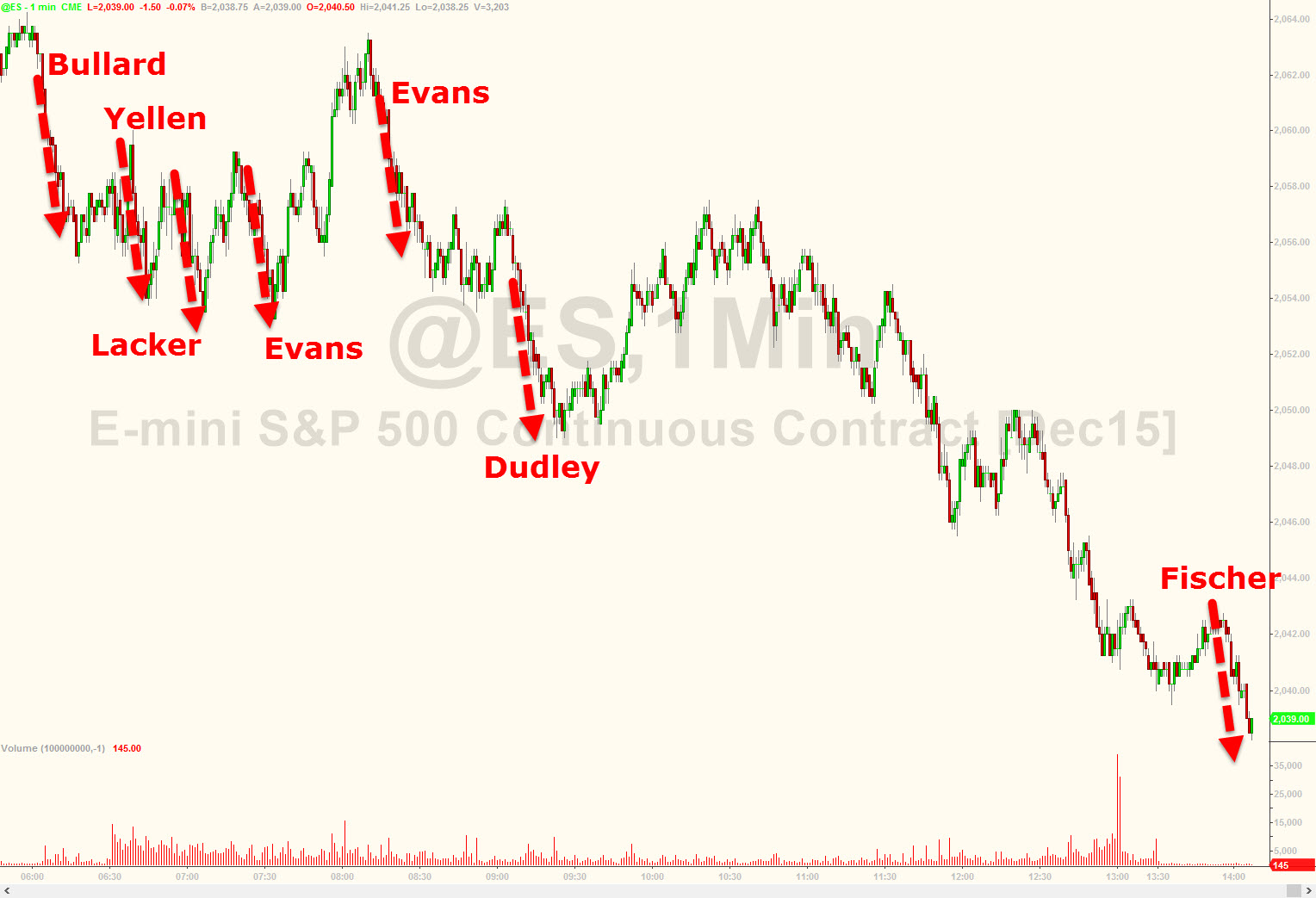Having recently shown The Fed to go 6 for 6 in a day of FedSpeak failures to spark animal spirits, it appears this is actually not so unusual for some members of The Fed. As WSJ found, when it comes to watching the Federal Reserve, it’s a good idea to keep an eye on Atlanta and San Francisco but for 9 of the policy-makers, economists rank their ‘FedSpeak’ as less than useful… with soon-to-be-replaced Kockerlakota the least useful Fed speaker of all…
Having recently shown The Fed to go 6 for 6 in a day of FedSpeak failures to spark animal spirits

But, as The Wall Street Journal reports,
Public statements by the 17 policy makers who participate in Federal Open Market Committee discussions are closely watched for clues to the likely course of central-bank policy. But not all speeches are equally helpful for Fed prognostication. Some officials speak from places near the consensus-driven committee’s center, while others air personal views that are at odds with the Fed’s likely course of policy.
Even sophisticated Wall Street traders often are tripped up—making trades that briefly move markets on the basis of remarks from officials with little influence or little indicative value.
To help cut through the cacophony of voices, the Journal surveyed 42 private forecasters on how useful they found individual officials’ public remarks as they gauged the course of Fed policy.

The red shaded region is Fed members who are less than useful
Toward the bottom were two freshly minted Fed presidents, Robert Steven Kaplan of Dallas and Patrick Harker of Philadelphia. Both officials took office this year and neither has yet staked out public positions on monetary policy.
Ranked last was the Minneapolis Fed’s Narayana Kocherlakota. He is set to retire at the end of the year after a tenure that saw his monetary-policy views undergo dramatic evolution; he went from dissenting against Fed stimulus efforts to becoming the Fed’s most vocal advocate for even more stimulus.
He speaks frequently on monetary policy, but that hasn’t translated into influence. “I wish I had done a better job,” he told the Journal earlier this year. “I think we’d be better positioned policy-wise if I had done a better job of being persuasive.”
Mr. Kocherlakota will be succeeded Jan. 1 by Neel Kashkari, the Minneapolis Fed announced Tuesday.













Leave A Comment